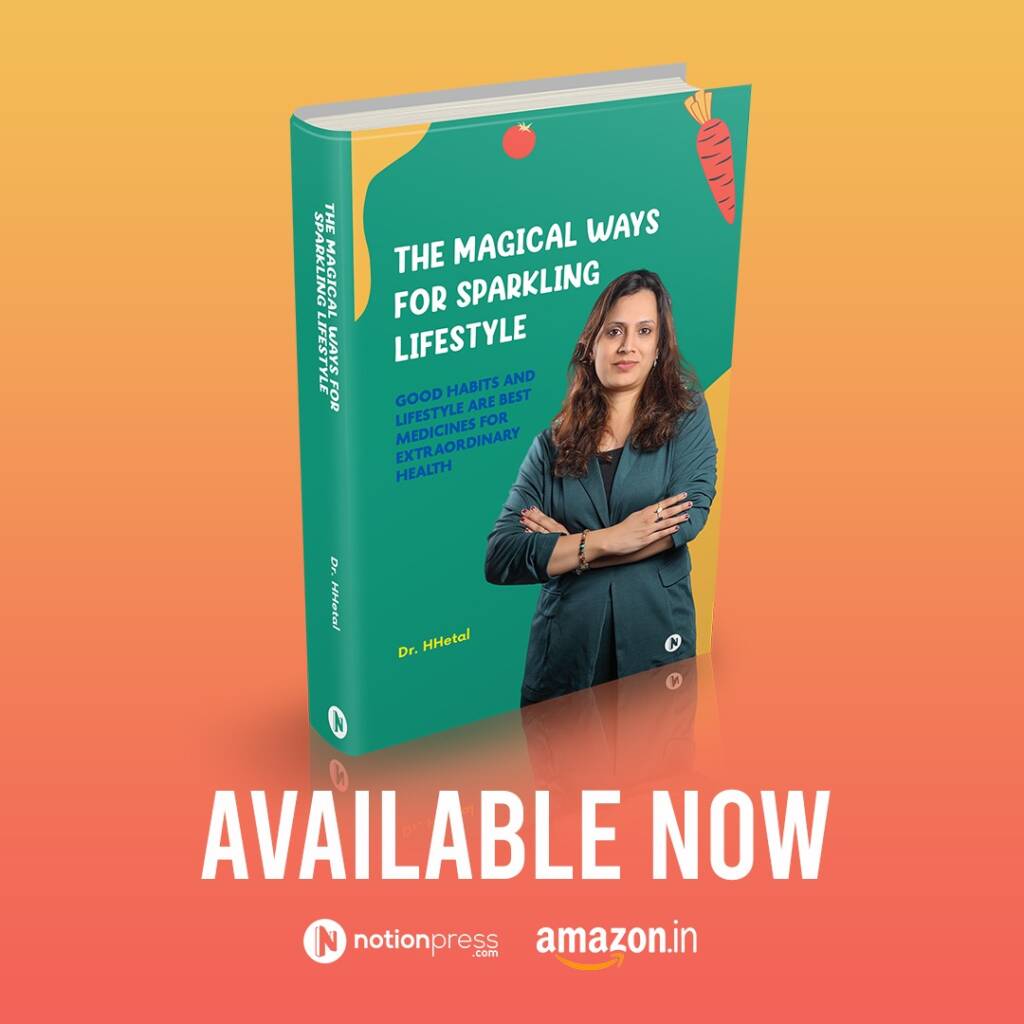Simple Guide to anti-aging foods:
Anti-ageing is a multifaceted topic encompassing lifestyle choices, skincare, and nutrition. In this comprehensive exploration, we will explore the science behind aging, the role of genetics and the impact of various factors on the aging process. We will then shift our focus to anti-aging foods, detailing how to balance and nutrient rich diet can contribute to youthful in and overall well-being.
https://sparklinglifestyle.in/10-magnesium-rich-foods-to-support-mental-health/
Understanding Aging: (Anti-aging foods)
Aging is the complex biological process influenced by genetic and environmental factors. The primary contributors include oxidative stress, inflammation, and the gradual decline in cellular functions. Genetics play a significant role, but lifestyle choices can either accelerate or decelerate the aging process.
The science of aging: (anti-aging foods)
You must have heard the words “free radicals” and “antioxidants” many times. Free radicals are like the villain of the movie and antioxidants are the hero. The benefits of antioxidants are innumerable. They prevent aging and reduce oxidative stress. They also raise energy levels and improve well-being. Free radicals are often labelled as culprits, which could do a lot of damage. Let us understand what free radicals are, and then see how antioxidants can help to improve your health in simple terms.

What forms free radicals:
To understand free radicals, you need simple knowledge of chemistry. Atoms are the basic building blocks of all matter. Electrons surround atoms and orbit the atom in layers. These layers are called shells. A set number of Electrons occupies these shells. When a shell is full, the next shell begins to accommodate the remaining electrons.
In case there are not enough electrons in a shell, the attempt requires electrons from other atoms to complete its outer shell. Such atoms are known as free radicals, free radicals are unstable atoms, whereas atoms that have a full outer shell are stable. The atoms that do not have a complete outer shell react quickly with other substances.
What is oxidative stress? (anti-aging foods)
When oxygen molecules split into single attempts, these may have unpaired electrons in their outer shells. In this case, they become unstable free radicals. These then seek other atoms or molecule so that they can bond with them. These sets in a process called oxidative stress.
This process can damage the body cells, which leads to several diseases. Oxidative stress also causes symptoms of aging, making wrinkles visible on the face and body.
Researchers at “Rice University” also discovered that once free radicals are formed, a chain reaction could occur. The first free radical will pull an electron from a neighboring atom. The atom is destabilized and turns into free radical, thus a domino effect is created, damaging the entire cell. Such free radical chained reactions can alter the structure of cell membranes- redefining what enters and leaves the cell. These increases the chances of tumor formation or leads to changes in the DNA code.
What are the effects of oxidative stress?
The body is under constant attack due to oxidative stress. Imbalance happens between free radicals and the antioxidants present in the cells. In normal circumstances, these of antioxidants can neutralize these free radicals. Yet, oxidative stress occurs when it becomes impossible to maintain this balance. This result in excessive free radical production. The reason for this non-maintenance can be many. Some of these include:
pollution, cigarette smoke, alcohol high intake of unhealthy fats, too little oxygen in the body, radiation, excessive medication.
The presence of free radicals in the body contributes to cell and tissue damage. This causes several problems. such as,
cancer, diabetes, high blood pressure, atherosclerosis, Alzheimer’s disease, Parkinson’s disease, asthma, male infertility, stroke, inflammatory disorders, chronic fatigue syndrome.
Why Bother about free radicals?
Free radicals are produced either due to natural or man-made causes. For instance, pollution causes the generation of free radicals in our body. And so does ultraviolet rays (UV rays). As discussed earlier, the consumption of processed foods also increases free radical formation.
Now, our previous generations were not exposed to extreme environmental factors. Neither did they consume so many ultra processed foods. Their diet was much healthier than ours, so they did not have to worry about the impact of free radicals on their health. Their diet was enough to combat the negative effects of free radicals on their body. But in our case, it is not so. We already face the severe impact of environmental factors on our bodies. Besides, we lead to an unhealthier lifestyle. So, we need to provide external help to our body to fight the dreaded effects of free radicals.
What is the Hype around antioxidants?
Mother nature is kind and wise. She has provided for a solution to every problem that exists on Earth. In the case of free radicals, the antidote is antioxidants. Antioxidants, as the name suggests, keep this oxidation in check. Antioxidants provide the excess electrons to the free radicals. In this process, they do not lose stability themselves. They do not allow these free radicals to cause mayhem and disrupt body metabolism.
Fiber cleanse up waste products in the intestine, similarly antioxidants clean up the free radical waste that could be present in the cells.
Our bodies produce certain antioxidants like lipoic acid, glutathione, ubiquinol and uric acid.
In certain circumstances, they are not present in adequate quantities to combat free radicals. For this reason, we need to take antioxidants in our diet.
Hear, the more celebrated antioxidants come into the picture. These include vitamin E, vitamin C, beta carotene and many others. Minerals such as selenium and manganese also act as antioxidants.
Others include carotenoids, tannins, flavonoids, isothiocyanates and resveratrol. So, different type of antioxidants works together to affect various body metabolism.
Here are some of the multiple role antioxidants play in our body. For example,
- Boost your immune system responses to viral and bacterial attacks.
- Aid detoxification of unwanted compounds.
- Deactivate cancer, causing cells.
- Reduce bed cholesterol.
- Prevent blood clots from forming.
- Protect the walls of your arteries and veins.
- Reduce the aging of sales by combating free radicals.
Antioxidant seems like a fearless hero in a patriotic movie, right? Well, they indeed are. So, your body must have enough antioxidants at all time.
Anti-aging foods:
As antioxidants that the body produces may not be enough, we need to rely on the food we consume to provide us with extra antioxidants. Most antioxidants we consume are from plant foods.
- Antioxidants rich foods: Berries, dark chocolate and leafy greens provide antioxidants to combat free radicals.
- Omega 3 fatty acids rich foods: Found in fatty fish, walnuts, and flax seeds. Omega 3 supports skin health and reduced inflammation.
- Collagen boosting foods: Collagen is vital for skin elasticity. Bone broth, fish and soy products can stimulate collagen production.
- Vitamins and minerals: Antioxidants like vitamin C and vitamin E are found in ample quantities in Citrus Foods and some vegetables. Citrus fruits include oranges, guava, grape fruit, apricots, pomegranates, and lemon. Some Antioxidant rich vegetables are broccoli, cauliflower, spinach, beetroot, cabbage, and fenugreek leaves.
- Hydration: Water is essential for maintaining skin elasticity and overall hydration.
- Fruits and vegetables are rich in in Beta-carotene, Lycopene, ellagitannin and sulforaphane.
- vitamin E is abundant in dry fruits, almonds, walnuts, peanuts, pine nuts and such. It is also found in large quantity in green leafy vegetables.
Conclusion:
Aging is a natural part of life, but lifestyle choices and a nutrient rich diet can significantly influence the process. From understanding the science behind aging to implementing anti-aging practices, a holistic approach is key. Incorporating anti-aging foods coupled with skin care and healthy habits can contribute to a more youthful and vibrant life.



Leave a Comment